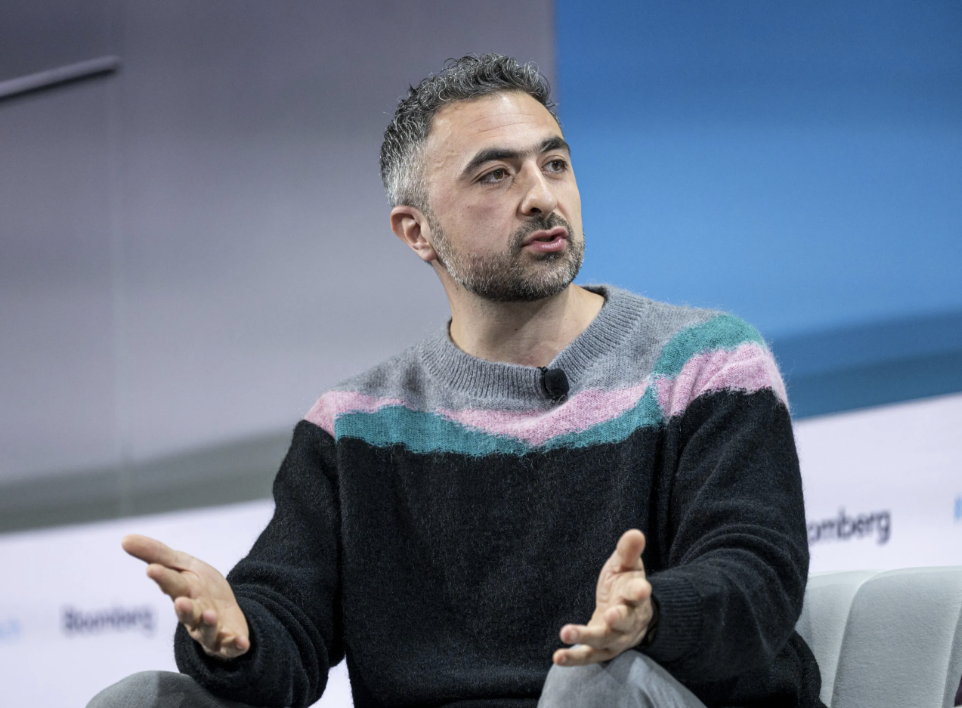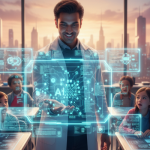This blog was last updated on 21 August 2025
This blog is presented by Twin Science, a global education technology company empowering educators through AI-enhanced learning solutions.
Warning from Microsoft’s Head of AI
Artificial Intelligence (AI) is rapidly becoming part of our everyday lives. From chatbots that answer questions to tools that help us learn, its influence is undeniable. But with this growth comes new challenges.
Recently, Mustafa Suleyman, Microsoft’s Head of AI, warned about a rising phenomenon he calls “AI psychosis.” Reported by the BBC, this describes situations where people begin to believe that AI chatbots are conscious or develop imaginary relationships with them.
For schools and educators, this raises an urgent question: How do we prepare young learners to benefit from AI while protecting them from these risks?
Evidently, AI literacy has become a necessity. Explore classroom-ready learning solutions and start making AI literacy real for students.
What Is “AI Psychosis”?
“AI psychosis” is not a clinical diagnosis but a term used to describe psychological detachment from reality triggered by over-reliance on chatbots like ChatGPT, Claude, or Grok.
Examples reported include:
-
Believing a chatbot is “in love” with them.
-
Thinking they have “unlocked” secret powers within the AI.
-
Relying on AI advice so completely that real-world guidance (from lawyers, therapists, or family) is ignored.
One case study in the BBC report described Hugh, from Scotland, who became convinced that a chatbot’s advice would make him a millionaire. Over time, he lost touch with reality, experiencing a full breakdown before seeking medical help.
Why This Matters for Schools
Children and young people are particularly impressionable. As AI tools become embedded in classrooms, the danger of blurred boundaries between simulation and reality increases.
Dr. Susan Shelmerdine, a medical imaging doctor and AI academic, compared AI use to ultra-processed food: “We already know what ultra-processed foods can do to the body; this is ultra-processed information.” If left unexamined, it may create “ultra-processed minds.”
This makes AI literacy a core 21st-century skill, just as important as reading, writing, and mathematics. Get in contact to introduce AI literacy to your students through Twin’s learning solutions.
Twin Science’s Perspective: Building AI Literacy with Conscience
At Twin Science, our mission is to nurture students’ STEM and AI skills responsibly. We believe AI must be taught hand-in-hand with critical thinking and compassion.
Here’s how our STEM for Sustainability curriculum helps prevent risks like AI psychosis:
1- Demystifying AI
-
-
Students learn how AI works — algorithms, data, and limitations — so they don’t mistake simulation for consciousness.
-
2- Hands-On Experimentation
-
-
With STEM Kits and classroom projects, students design earthquake detectors, sustainable farms, or smart canes — seeing AI as a tool, not a “mind.”
-
3- Educator Empowerment
-
- Our AI-powered Educator Portal helps teachers plan lessons responsibly, with clear guardrails around ethical use.
4- Fostering Human Connection
-
-
Every AI project is tied back to the United Nations Sustainable Development Goals (SDGs), reminding learners that technology must serve real human needs, not replace human relationships.
-
Advice for Educators
-
Teach students the difference between AI outputs and human empathy.
-
Encourage reflection: “Does this answer feel real, or is it just convincing?”
-
Remind children: AI can simulate words, but not feelings.
-
Always balance AI use with human interaction, discussions, debates, teamwork.
Conclusion
We are at the beginning of what some researchers call “social AI”, where chatbots may play roles similar to social media. As Professor Andrew McStay from Bangor University reminds us: “While these things are convincing, they are not real… Be sure to talk to real people.”
At Twin Science, we couldn’t agree more. By combining AI literacy with sustainability education, we aim to raise a generation that is not only skilled in technology but also grounded, compassionate, and prepared to use AI for the collective good of our planet.






